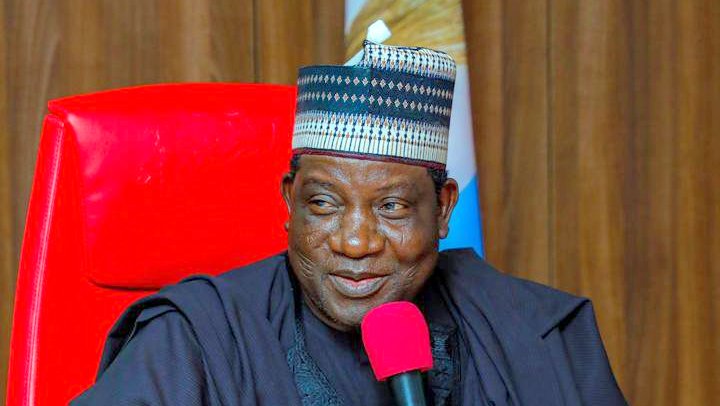Chairman of Northern Governors Forum and Governor of Plateau State, Simon Lalong has advised Nigerians never to allowed religion and ethnicity to divide the country.
He noted that crises Marchants who are bent on causing violence by burning places of worship to attract religious sentiment should not be given a breeding space in any part of the country.
Lalong stated this on Monday during the inauguration of Plateau State Inter-religious Council under the Chairman and Co-Chairman, Rev. Prof. Pandang Yamsat, former COCIN President and His Royal Highness, Alh. Sambo Mohammed III, Emir of Wase and Chairman JNI, Plateau State, held at Government House Jos.
Read Also: We Have Spent ₦366.5M On COVID-19 – Plateau Gov Lalong
‘We should not allow religion to divide us, rather religion should unite us. Despite the efforts and modest successes recorded at stemming the tide of ethno-religious violence, Plateau State is still in dire need of healing.
‘Our people have remained somewhat divided along ethno-religious or tribal lines due largely to the experiences of yesterday. Yet, we have a golden opportunity to open a new leaf by consolidating on the gains of our efforts within the last six years.
‘We cannot claim that all issues in the heart of the crises have been resolved, we have in our hands the tools that can help midwife the rebirth of a new and united Plateau that is at peace with itself and neighbors.’
Lalong task the Inter-religious Council to work closely with the Peace Building Agency to resolve the current skirmishes around Riyom and Bassa Local Government Areas of the state and champion forgiveness.
‘The State Inter-religious Council will critically think through issues and build consensus on challenges that threaten freedom, tolerance, and peace.
‘The Council will adopt a flexible and confidential format in which even controversial issues can be discussed; assumptions tested and ideas generated.Through joint analysis and structured interfaith dialogue, voices from divergent communities can come up with new ideas and approaches that will help enhance resilience and social cohesion.
Lalong further went on to say: ‘My administration clearly understands that many of our people have been hurt and could have also caused pain for others. Many cannot seem to erase the hurt from their mental hard drive and continue to harbour bitterness, resentment, and anger.
“The choice before us is to either continue in our anger thus spending the rest of our lives in pain and bitterness, or we can choose to be released, healed, and be set free. That is where forgiveness becomes inevitable.’
AFRICA TODAY NEWS, NEW YORK
